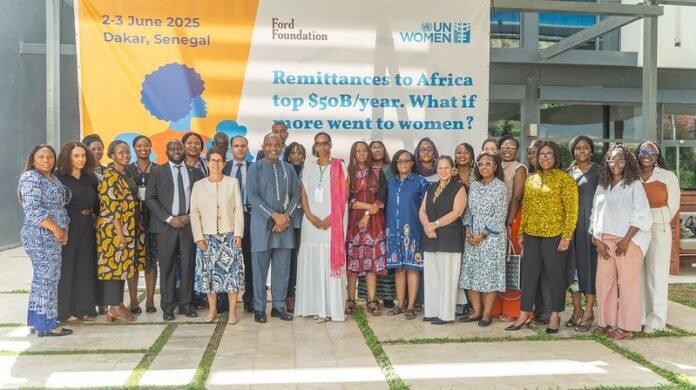Bridging the Gap: Inclusive Fintech Solutions for Rural Women Entrepreneurs
On June 17, a pivotal conference in Dakar, Senegal, brought together financial and philanthropic leaders to address a pressing issue: the digital and financial divide affecting rural women entrepreneurs. Co-hosted by UN Women and the Ford Foundation, this Regional Conference on ‘Sustainable Philanthropy and Remittances for Gender Equality’ attracted over 150 thought leaders from various sectors, including finance, government, technology, and civil society.
The Call for Inclusive Solutions
The conference underscored the urgent need for inclusive fintech solutions and policy reforms aimed specifically at empowering women in rural areas. Participants emphasized that financial systems should not merely cater to those who already have access but should be designed to include women who are often overlooked. Dr. Maxime Houinato, the UN Women Regional Director for West and Central Africa, articulated this sentiment, urging African nations to transition from a reliance on remittances to fostering resilience among women.
Remittances as Strategic Investments
One of the key themes of the conference was the need to rethink remittances. Rather than viewing them as one-off transfers or acts of charity, speakers advocated for recognizing them as intentional, long-term investments. Dr. Catherine Chi-Chi Aniagolu, Ford Foundation Regional Director for West Africa, emphasized the importance of shifting power dynamics and building systems that prioritize African women’s voices and leadership. This shift could unlock significant opportunities for women and girls, allowing them to become architects of their own futures.
Building Partnerships for Change
The conference also highlighted the importance of structured partnerships among diaspora networks, local civil society, and public institutions. Mr. Kofi Appenteng, President of the African American Institute, pointed out that remittances represent a “quiet, perhaps surprising, success story.” However, he cautioned that scaling these efforts must remain grounded in the voices and needs of those directly affected—both senders and receivers of remittances.
Financial Products for Development
Financial products and the enabling environment for their use were crucial topics of discussion. Mr. Paul-Harry Aithnard, Ecobank Group Regional Director, noted that sending money home should extend beyond mere consumption. With the right policies and investment products, diaspora capital could serve as a strategic engine for development. This perspective aligns with the evolving funding models of various foundations and financial institutions, which are increasingly embracing inclusive, feminist, and locally rooted approaches.
Empowering Women Entrepreneurs
The conference showcased successful initiatives aimed at empowering women entrepreneurs. Oniye Okolo, Policy and Partnerships Officer at the Tony Elumelu Foundation, shared that when the foundation launched its grant in 2015, most applicants were men. Today, 45% of grantees are women, reflecting a commitment to building an ecosystem where women can thrive and lead. Similarly, Elisa Desbordes, CEO of the Ecobank Foundation, emphasized the importance of addressing the funding gap and mentorship needs of women entrepreneurs, particularly those in the informal sector.
Financial Inclusion Strategies
Ms. Ndeye Amy Ngom Seck, representing the Central Bank of West African States, highlighted targeted strategies aimed at women. She asserted that when women thrive, everyone benefits. This principle is at the heart of their financial inclusion strategy, which places women not just as beneficiaries but as drivers of economic transformation. She noted that reallocating even a portion of diaspora remittances toward women’s empowerment could lead to transformative outcomes.
Diverse Applications of Remittances
The conference also explored how remittances could be strategically aligned with philanthropy to drive sustainable change across various sectors, from maternal health to green entrepreneurship. By recognizing the potential of remittances as a tool for development, stakeholders can create a more equitable and sustainable future for women and girls in Africa.
A Collective Vision for the Future
As the discussions unfolded, it became clear that the path forward requires a collective vision that prioritizes the voices and needs of women. By fostering inclusive fintech solutions and reforming policies, stakeholders can work together to close the digital and financial divide, ensuring that rural women entrepreneurs are not just participants in the economy but leaders shaping their own destinies.

